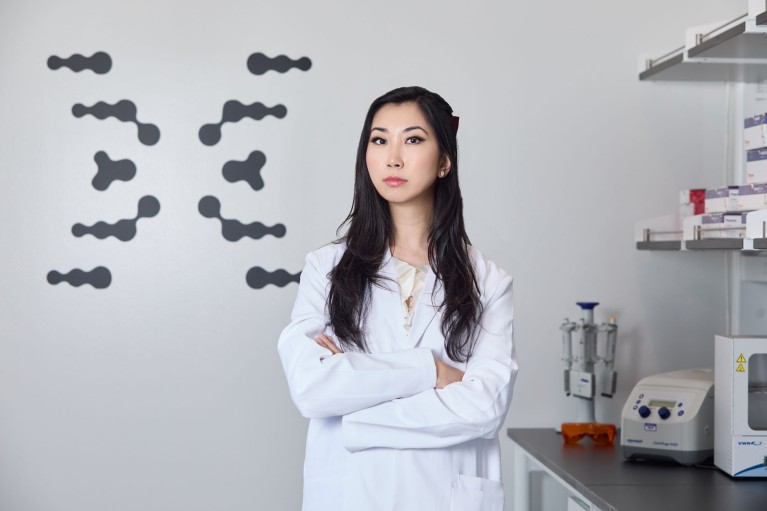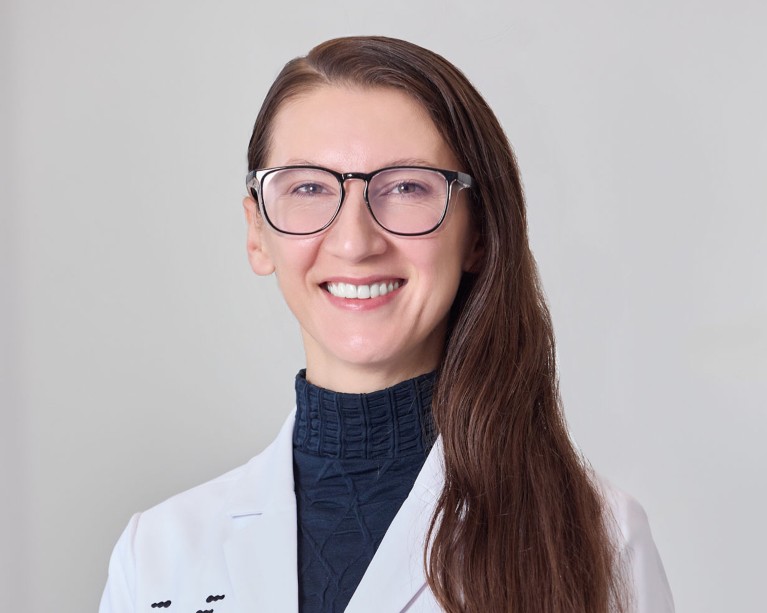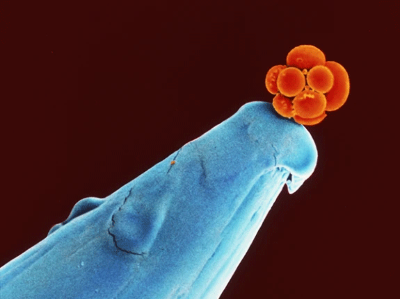
Entrepreneur Cathy Tie’s firm Manhattan Genomics will work on strategies to edit the genomes of human embryos. Credit score: Caitlyn Gaurano
Cathy Tie left college to discovered her first biotechnology firm on the age of 18. Within the 11 years since, she has launched a number of extra. Her first firm helped genetic-testing companies to interpret their outcomes; her second supplies digital health-care providers.
Her newest enterprise, which introduced a few of its first key hires on 30 October, veers out of the mainstream. Tie, who has known as herself Biotech Barbie, generally refers to her newest firm because the Manhattan Mission — the title used for the US effort to develop an atomic bomb within the Nineteen Forties — and now focuses her entrepreneurial ambitions on a controversial objective: altering the genome of human embryos to stop genetic issues.
Why CRISPR infants are nonetheless too dangerous — embryo research spotlight challenges
“We’ve an obligation to sufferers with incurable, debilitating ailments,” says Tie. “A majority of Individuals are in help of this expertise.”
Loads of scientists, nevertheless, are fearful. Manhattan Genomics, the official title of her newest firm, based mostly in New York Metropolis was launched this summer season. Tie co-founded the agency with Eriona Hysolli, former head of organic sciences at Colossal Biosciences, a Dallas, Texas agency centered on de-extincting species. One other firm known as Preventive in South San Francisco, California, introduced on 30 October that it additionally intends to discover gene modifying in human embryos.
Thus far, neither firm has revealed the small print of its scientific plans, corresponding to which ailments it should goal, and which methods it should use. Tie says Manhattan Genomics will conduct intensive analysis and security testing earlier than making an attempt to create gene-edited infants. Among the many new consultants introduced final week are a bioethicist and two scientists with experience in non-human primate reproductive biology — abilities that may be wanted for testing the protection of embryo modifying.
Even so, some researchers say it’s a lot too early to contemplate commercializing gene-editing applied sciences for human embryos — a course of that carries added security dangers and moral quandaries in contrast with the gene-editing therapies which can be at the moment available on the market to deal with blood situations in youngsters and adults.
“The bar for security is so, so, so, so excessive,” says Alexis Komor, a biochemist on the College of California San Diego, who research gene-editing applied sciences. “We’re positively not there but.”
CRISPR therapies
For years, the gene-editing discipline has laboured within the shadow of He Jiankui, a Chinese language biophysicist who, in 2018, introduced that he had edited human embryos to bolster the ensuing youngsters’s resistance to HIV. These embryos had been implanted into the mom, and two gene-edited women had been born. He was then sentenced to 3 years in jail for “unlawful medical observe”. (Tie and He had a private relationship earlier this yr, however Tie says the 2 have since parted and that He’s not concerned in Manhattan Genomics.)
Scientists largely condemned his work, with many calling for a moratorium on all scientific makes use of of heritable gene modifying in people. Some international locations have restrictions on such analysis. In the USA, for instance, federal funds can’t be used for gene-editing research in human embryos, and the US Meals and Drug Administration can’t approve scientific use of genetically manipulated embryos.
Amid this turmoil, gene modifying in non-reproductive cells has raced forward. The world’s first accredited gene-editing remedy makes use of the DNA-snipping system known as CRISPR–Cas9 to edit DNA in blood stem cells. The remedy, which was accredited in 2023, treats two genetic blood issues. Earlier this yr, a associated technique known as base modifying was used to edit DNA of liver cells in a bespoke remedy for an toddler with a metabolic dysfunction.
Unwanted effects
However modifying non-reproductive cells is totally different, ethically and scientifically, from modifying embryos, says Junjiu Huang, a biologist who research reproductive improvement at Solar Yat-sen College in Guangzhou, China. Gene-editing instruments may behave otherwise in an embryo than in non-reproductive cells. Enhancing an embryo additionally implies that genetic modifications will likely be handed all the way down to the subsequent era, with penalties which can be troublesome to foretell.
Undesirable DNA modifications — a risk with any gene-editing expertise — might have extra catastrophic results within the embryo than in a single organ, as a result of they will have an effect on each cell within the physique throughout essential phases in improvement, says Komor. And a vanishingly small variety of folks would wish to edit genes of their embryos, she says, on condition that many can already use genetic exams to display screen embryos for disease-causing mutations.
Tie and Hysolli word that strategies used to edit genes have developed significantly since He’s experiments. Newer methods, corresponding to base modifying and one other strategy known as prime modifying, provide improved precision in contrast with typical CRISPR–Cas9 modifying. Neither of those methods require breaking each strands of DNA, a necessity for the unique CRISPR gene-editing technique and a step that may trigger drastic chromosomal modifications in embryos. “A whole lot of new advances have occurred within the gene-editing area to make it safer and extra correct,” says Tie.

Eriona Hysolli, who co-founded Manhattan Genomics, is a veteran of de-extinction firm Mammoth Biosciences.Credit score: Caitlyn Gaurano
However researchers are nonetheless studying the complete gamut of undesirable genetic modifications that base modifying may cause, says Komor. Even much less is thought about newer strategies corresponding to prime modifying, she provides.
In 2015, Huang and his colleagues had been the primary to gene edit human embryos1. (The embryos weren’t implanted in a mom.) Since then, he has continued to work with embryos utilizing base modifying, and says the method holds promise, however shouldn’t be prepared for the clinic. Hysolli agrees that the strategies must be studied additional, significantly in embryos. The strategy that Manhattan Genomics finally chooses will likely be dictated a minimum of partially by the ailments it decides to concentrate on first, she says.
Huang describes the timing of Manhattan Genomics’ launch as “inappropriate”. The expertise shouldn’t be but mature, he says, nor are the ethics, social consensus and authorized framework for the expertise’s use.
